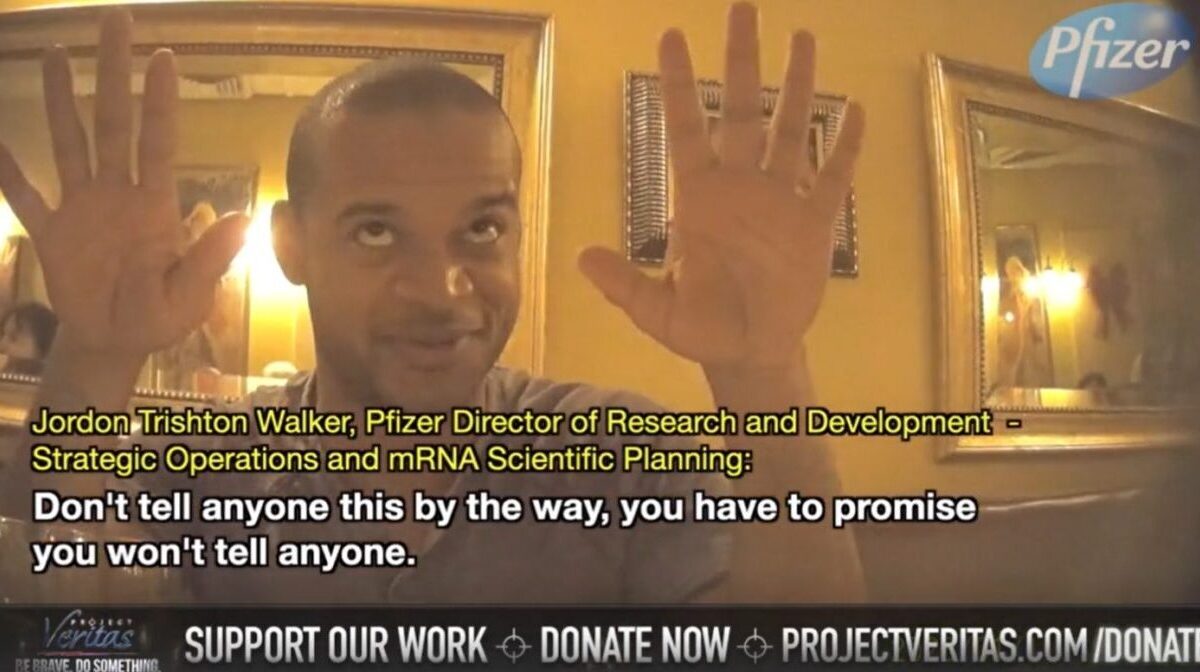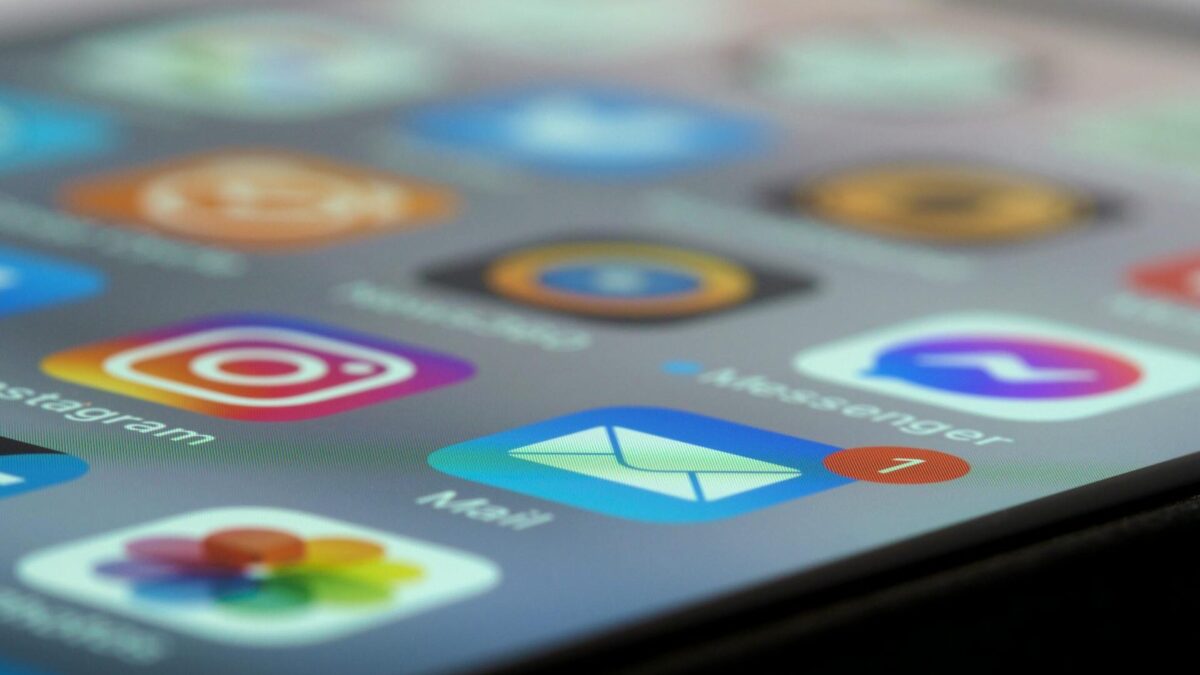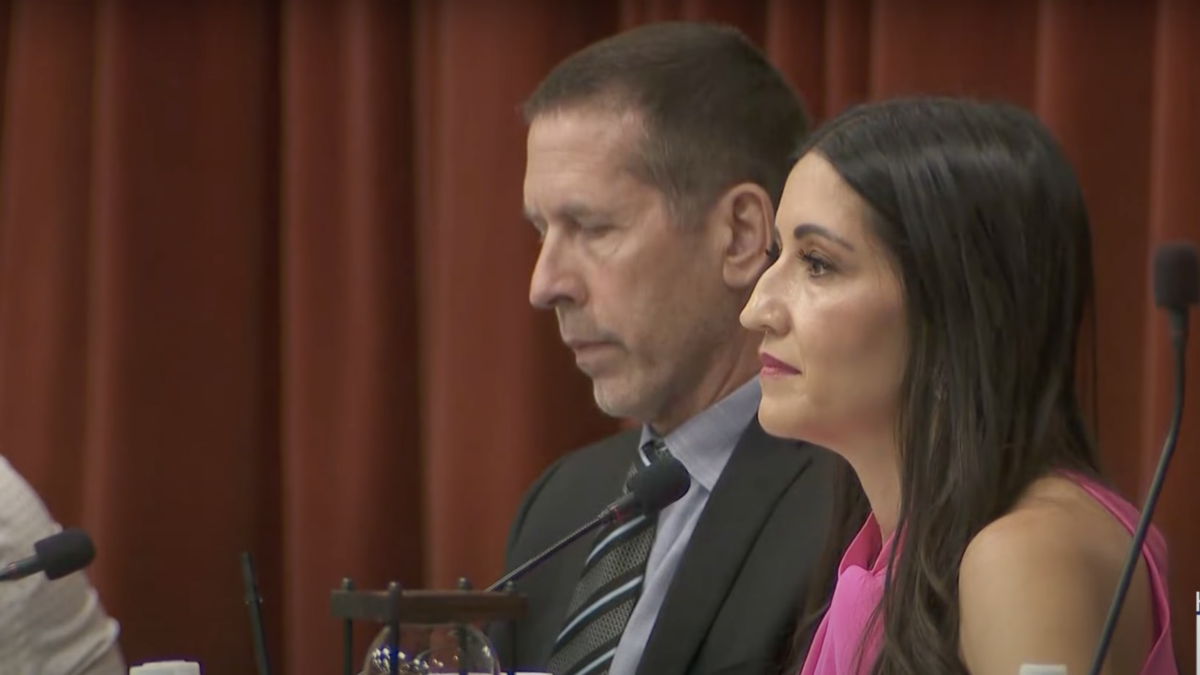YouTube has pulled yet another Project Veritas video.
The now-infamous video of Jordon Trishton Walker, Pfizer’s director of research and development in strategic operations and mRNA scientific planning, giving up information on #DirectedEvolution and Pfizer’s plan to continue profiting from the Covid vaccines is still available in full on Rumble.
As Tucker Carlson introduced the story Thursday night, he said:
Consider the story that did not break today. … In the 24 hours since Project Veritas posted this footage, it has been viewed more than 12 million times on Twitter. No other media outlet has covered this story at all. … [You’d think you could] just go online and find out about it. Well Google, the biggest search engine in the world, which has a monopoly on search in this country … appears to have gone out of its way to make it much more difficult for users to learn anything about the Pfizer executive pictured in the footage.
Apparently, Carlson’s sources found what so many others suspected immediately after the Project Veritas story broke — that Google appeared to mask and misdirect its search results almost immediately. That seems as clear a sign as any of the collusion between Big Pharma and Big Tech.
That’s not a far-fetched accusation. Consider The Wall Street Journal’s 2019 investigation, “How Google Interferes With Its Search Algorithms and Changes Your Results.” Among other things, they found, “Despite publicly denying doing so, Google keeps blacklists to remove certain sites or prevent others from surfacing in certain types of results.” Imagine how they’ve perfected this in the last few years.
By Friday evening, YouTube yanked Project Veritas’s Pfizer video, which had 800,000 views before it was censored. Luckily, it was still alive and well on Twitter with 20 million views.
After that, Rumble tweeted:
UPDATE: It seems like YouTube has removed @Project_Veritas’s video. In response, Rumble will hold the line against this outrageous censorship by keeping the video up and even featuring it on our homepage.
Censorship dies on Rumble.
Accusations of YouTube “censorship” have been rampant: from issues related to the Jan. 6 Committee and Covid vaccines, to climate change and public appearances by former President Donald Trump (presumably because he continues to question the results of the 2020 election; however, Google began censoring him long before that, supposedly for “false accusations” about Joe Biden.)
Holding Big Tech Accountable
One has to wonder how long we are going to tolerate sources such as Google/YouTube deciding what we should or shouldn’t see. Freedom-loving Americans should be actively pursuing lawsuits to hold these monolithic companies accountable.
In this regard, Robert F. Kennedy Jr. should be commended for his work. Kennedy, along with multiple other plaintiffs, filed a lawsuit on Jan. 10 making antitrust and constitutional claims against corporate media outlets. The suit alleges the Trusted News Initiative (TNI), an industry partnership started in March 2020 by several of the world’s largest news organizations, partnered with Big Tech firms to collectively censor online news. Google/YouTube is one of the “core partners” of the TNI.
This is a huge step in the right direction. Yet even now, as many people are waking up to the fact that their friends and loved ones may have been harmed by mRNA shots marketed as “vaccines,” there is no great public backlash against YouTube for censoring questions or warnings that might have informed the public about the risks of the Covid jabs.
Big Tech Runs Roughshod
Large YouTube channels such as Russell Brand’s and Dr. John Campbell’s still have to speak vaguely about anything Covid-related to their millions of subscribers, just so they won’t get shut down — as if they lived under communist or fascist rule.
The bottom line is that Big Tech is running roughshod over us. Beginning with YouTube’s Chief Executive Officer Susan Wojcicki, and on up the ladder to Google and parent company Alphabet, headed by Sundar Pichai, it becomes clear that the looming elephant in the room has grown too big. Imagine a 21st-century, augmented reality version of “You can’t fight city hall.”
“Every single CEO supposedly for the last 20 years has been talking about the free and open internet,” explains Rumble CEO Chris Pavlovski. “They’ve been parading like the most important thing is to not regulate the internet and keep it free and open. Then all of a sudden in the last three or four years, everyone’s parading the opposite: Let’s censor it and let’s have a controlled internet. Never in my life could I ever have imagined that happening.”
In a Fox Nation special earlier this month that everyone concerned with censorship and free speech should watch, Pavlovski sat down with Carlson to discuss internet suppression and the birth of Rumble. It is an eye-opening explanation of how our digital information works, and of the uphill battle we face in taking back our First Amendment rights.
Pavlovski explained:
These companies all respectively have a monopoly on their certain division of the internet: Google is search, YouTube is video, Twitter is microblogging, and Facebook is social networking. … It’s a fun party for them. … Think about how big these companies are in comparison to the railroads and the tobacco companies in [the early 20th century] — these are even more powerful and have even more control than those companies did at that time. … So I don’t think they want to let that go. They’ve certainly abused their power.
Backlash for Critics
And don’t think Pavlovski hasn’t already felt a backlash after his appearance on Fox Nation. Less than 10 days later, Rolling Stone ran a piece titled, “Far-Right Superstars Are Failing on Rumble. Who’s Winning?”
Rolling Stone is part of the Penske Media Corporation (PMC), a growing near-monopoly run by billionaire media tycoon Jay Penske. In July 2021, PMC brought in Noah Shachtman, former editor at The Daily Beast, to be Rolling Stone’s new editor-in-chief. A former Bill Clinton campaign staffer, it’s clear in which direction his bias lies.
In order to give Rumble a thorough dissing, Rolling Stone sought out E. Rosalie Li, “a public health scholar and disinformation researcher at Johns Hopkins University.” She also runs Hoaxlines, an organization that researches “media manipulation and unethical efforts to influence the public.” Li explains that Covid lockdowns “scared people who believed that the government was dangerous.” She then laments that there was “life-threatening” information posted on different platforms, and not enough of it was removed concerning Covid and the Jan. 6 Capitol riot. As a result, the masses fell victim to “conspiracy theories.”
The article then launches into a full-blown justification for censorship, quoting yet another misinformation expert, and explaining that as the masses peruse various internet platforms, they are becoming affiliated with like-minded believers. This, they claim, is dangerous because together they will morph into extremists spreading evil misinformation. And that can’t be allowed to happen.
It’s clear that with the rise of “misinformation experts” (there are currently 245 such code-worded job openings on Indeed), YouTube isn’t about to back down in its assault on free speech.
Lawsuits Offer Hope
Luckily, there are some targeted lawsuits coming before the courts, including the Supreme Court, that will challenge Section 230 of the Communications Decency Act. This law “grants a liability shield to internet platforms that protects them from being held responsible for their users’ posts, while also allowing them to decide what stays up or comes down,” CNBC reports. These cases, outlined here, will help determine the bounds of free expression on the internet.
In the last few years, thanks to cancel culture and the seemingly unbridled power of Big Tech, we’ve come to understand how fragile free speech really is.
Project Veritas’ James O’Keefe recently copied YouTube’s CEO Wojcicki on a tweet to Elon Musk, asking him how much it would cost to buy YouTube. He’s got a point. In the short term, we may be left praying that Musk or other benevolent billionaires can come to the aid of saving the First Amendment. There is no future for America without it.









